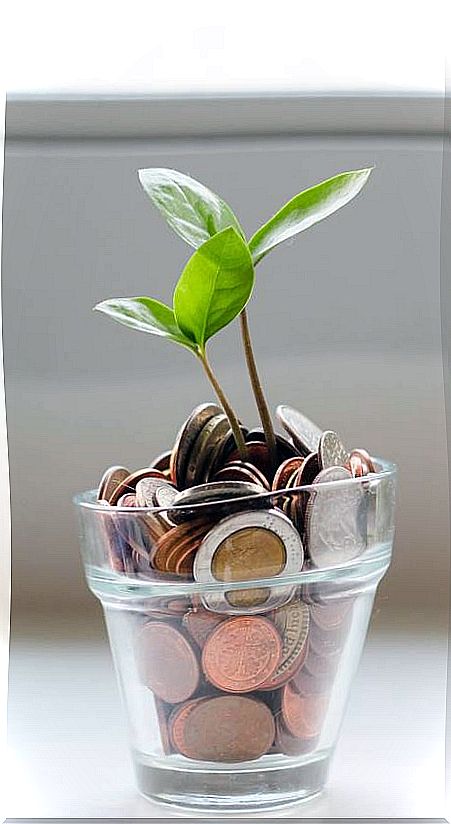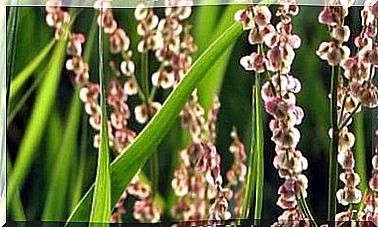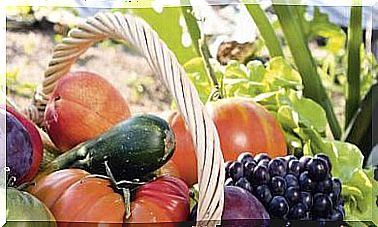10 Tips To Be More Sustainable And Save Money
There is an absurd prejudice that ecology and savings are incompatible. They actually go hand in hand, because ecology and sustainability start by consuming fewer resources and therefore spending less money.

Implementing a sustainable lifestyle and saving money, is that really compatible? Money plays an important role in everyday life and many people are afraid of spending more money if they pay attention to sustainability.
However, we must put an end to the misconceptions about the green lifestyle. It is not for the privileged, but for conscientious people. Taking ecology into account can help save money. We explain how.
Saving money is sustainable
The best way to save money is to act wisely, not buy more expensive, eco-labeled things. But acting wisely involves reflecting on your own needs and always thinking about the medium and long-term consequences for your own health, for other people and for the planet.
Organic food and organic fashion may be more expensive than conventional options, but to save the key is to buy only what you really need.
1. Use public transportation
The cheapest thing about driving a car is getting a driver’s license. Then everything is expenses: the car itself, parking, insurance, maintenance and repairs, fuel … Are you sure that you would not save much if you did without the car?
Think that if you move on foot and by public transport, and by rental or shared car when it is essential, you can save a lot of money.
2. Buying second hand
The vintage look is in! You will also save a lot of money by relying on used clothing, furniture, and household utensils.
There are numerous exchange platforms where you can find almost anything you need and you can output the ones you no longer use.
Thrift stores and flea markets are other options.
3. Turn off your mobile phone
Your phone is most likely on every day and from morning to night. This makes it easy for your thumb to slide across the screen and any data transfer represents energy consumption that you end up paying for in some way.
Consider turning off your phone at set times throughout the day. For example, from 10 p.m. to 10 a.m. and from 2 p.m. to 6 p.m.
On the other hand, it rarely makes sense to buy a new mobile. The sustainable recommendation is to extend the life of the current mobile as much as possible and then acquire a second-hand one from a private individual or a reconditioned one.
4. Drink tap water
If you drink tap water, you will save money and avoid generating waste as polluting as plastic. Every time you buy water in a plastic bottle, you are paying more for the cost of the container and its transport than for the liquid. Does it make any sense?
Tap water is cheaper. If the supply is not of the best quality, press the authorities to improve it and, in the meantime, use filtering systems.
5. Open a checking account with an ethical bank
The accounts are not necessarily free. Do you pay an annual or monthly fee on your own? This is a good time to switch to an ethical and sustainable bank and open a free checking account.
Brenda Chávez explains the options in Ethical Banking: money for a better world.
6. Bring your own bags when you go shopping
Plastic bags, even though they are compostable, and paper bags not only cost money, they are also an unnecessary burden on the environment. They also break faster than the old jute or cotton bag.
There is no excuse for not always carrying your own bag with you. Think of it as underwear or footwear, which you would never go out without.
7. Online shopping is the last resort
The sustainable economy is local. Think about one thing: do you want to live in an environment surrounded by people who can earn a living or do you care how your neighbors spend it? So whenever possible, leave your money the closer to your home, the better. It is to take care of yourself and do not be fooled by macroeconomic theories.
Take an interest in the neighborhood stores, look for what you need and only if you need to buy online, and you can do it without a bad conscience.
On the other hand, it is obvious that the ease of shopping through the internet, comfortably seated on the sofa, can generate addiction. Make sure it is not your case or that of the people around you.
8. Save money and waste with “meal-prep”
Take-out coffee in the morning, a stand-up sandwich for lunch, and a quick pizza in the evening … fast food isn’t cheap or healthy.
The alternative is preparing your own takeout meals. Luckily it is something that is becoming very fashionable and that only has advantages for your pocket and for your health.
Last but not least, you save tons of waste by cooking your own food.
9. Consumption is not a reward
Did you pass an exam, dominate the job interview, or just had a rough day? Reward yourself with a walk, time with your loved ones or a pleasant evening with your favorite book. Because if you reward yourself with a shopping tour, you will regret spending the money and the “happiness” will have lasted for a short period of time.
10. Use reusable coffee filters
Give up the coffee pods, please. The coffee filter or traditional Italian coffee tastes better than machine capsules do a lot of publicity.
On the other hand, use washable cotton coffee filters. They save money and most of all a lot of unnecessary packaging waste. The kilo of coffee in capsules is much more expensive than organic coffee beans or ground.









